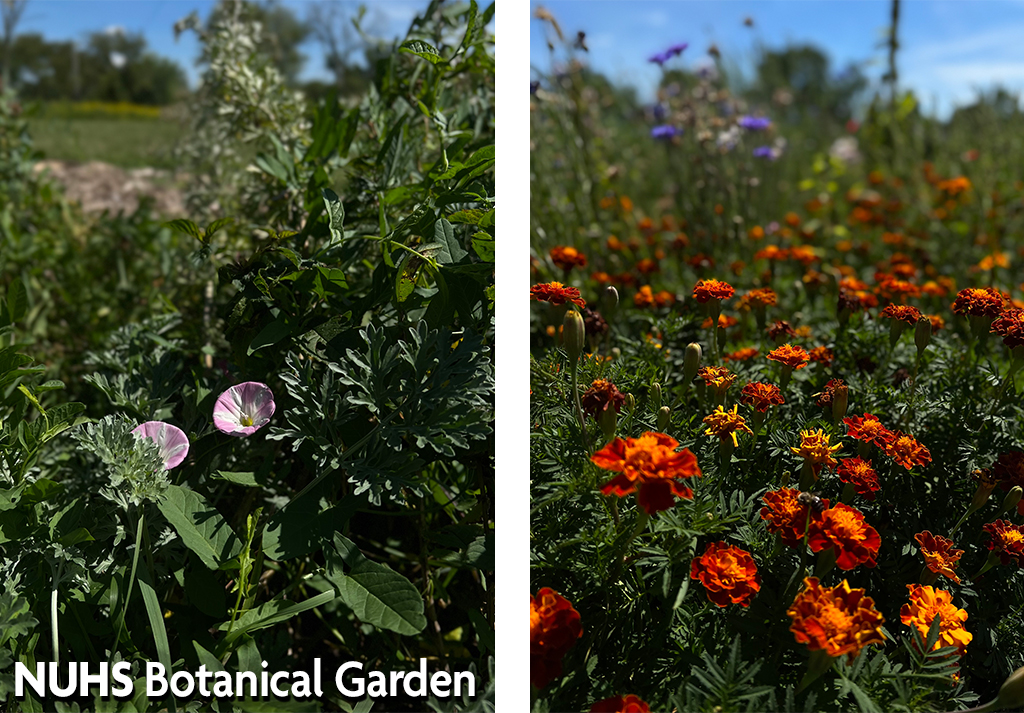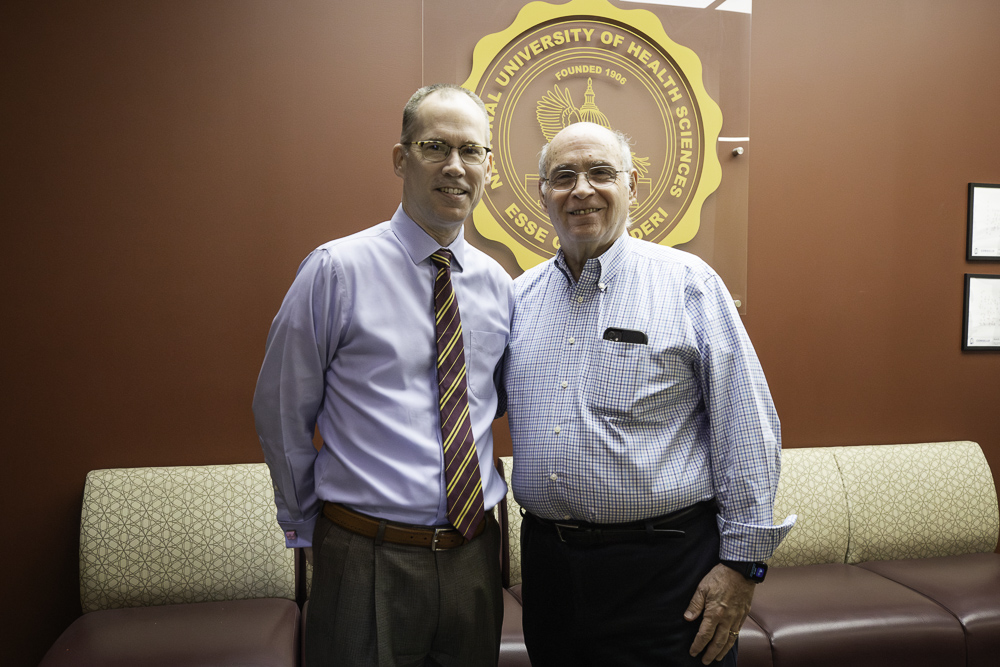 The garden that began in 2010 with 20 plants currently boasts 38 varieties of botanicals, with the cultivation of more planned. It was originally a project of NUHS’ Naturopathic Medical Student Association (NMSA) students under the direction of Lorinda Sorensen, ND, MSAc. The garden is cared for and maintained by the NUHS Garden Club. Students in all NUHS programs are welcome to join the club, and all NUHS community members are welcome to visit.
The garden that began in 2010 with 20 plants currently boasts 38 varieties of botanicals, with the cultivation of more planned. It was originally a project of NUHS’ Naturopathic Medical Student Association (NMSA) students under the direction of Lorinda Sorensen, ND, MSAc. The garden is cared for and maintained by the NUHS Garden Club. Students in all NUHS programs are welcome to join the club, and all NUHS community members are welcome to visit.
Located on the east side of campus, the garden began as two small circles, about 150 square feet in size, filled with Zone 5 perennials. Today, with the recent approval of the club’s Phase 1 expansion, the garden is now approximately 800 square feet. The expansion includes removing undesirable plants, digging out more space, covering the area with landscaping fabric, then covering those areas with mulch. A flagstone walkway is in the process of being completed, but additional stones are needed to extend it.
During the years of COVID restrictions, student clubs were less active than normal in caring for the garden. During this time, the existing space became overgrown by aggressive botanical (medicinal) and non-botanical (non-medicinal) plants. As things get back to normal, students have seeded the newest spaces and will replant the main garden area. They will focus on flowering botanicals first, then work to integrate less visually appealing, but equally valuable botanicals.
“The students are also thinking about relocating some of the plants so they are grouped together based on the amount of water they need, so they can be most effectively cared for,” said current faculty advisor James Salvatore, DC, MS.
“Although not all of our plants survived the past couple of years, the garden currently contains elderberry, milkweed, catnip, peppermint, thyme, and many other plants that are associated with traditional herbal remedies,” said student Greg Harnett, NUHS Garden Club Chair.
Beneficially, many of the herbal plants currently located in the garden support pollinators (bees, wasps, etc.) due to their flowering. Several plants, for example Chinese Yam, provide a direct food source for insects via their leaves. Others, such as burdock, are known for their robust rooting, which helps loosen and aerate compacted soil. This is beneficial for the ground ecosystem and stimulating future plant growth.
“The club is in need of more volunteers for weeding and watering duties, and volunteer turnout is expected to rise in the future,” said club secretary Tracy McBride. “Donations of equipment are welcome, but volunteering time and experience are greatly appreciated!”
To donate items or volunteer, visit the NUHS Botanical Garden’s Facebook page, or contact Dr. James Salvatore at jsalvatore@nuhs.edu.


